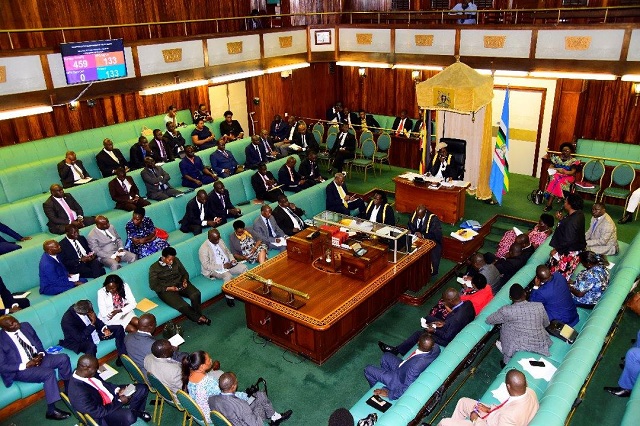
Kampala, Uganda | THE INDEPENDENT | Workers representative Arinaitwe Rwakajara is optimistic that the new Ministers at the Ministry of Gender will help fast track enactment of Minimum Wage Bill, 2015 into law.
Rwakajara is hopeful that Frank Tumwebaze who has replaced Janat Mukwaya as minister for Gender, Labour and Social Development will consider supporting the Bill so that it is assented to.
President Yoweri Museveni returned the Bill in August 2019 after receiving advice from Mukwaya and the Attorney General, William Byaruhanga.
Last month, President Museveni dropped Mukwaya. He also moved Mwesigwa Rukutana, who was Deputy Attorney General, to gender ministry as minister of state for labour.
Rwakajara believes that Tumwebaze and Rukutana will support the Bill and ensure that Museveni assents to it.
Rwakajara blames Mukwaya for misguiding President Yoweri Museveni because he rejected the Bill in its entirety.
The Bill, among other provisions, empowers the Minister of Labour to appoint a Minimum Wages Board to fix all minimum wages for various sectors and also mandates the minister to announce the minimum wages annually.
The Bill provides that employers will face a three-year jail term or a penalty of up to 10 million Shillings, for paying below the set minimum wage.
It also repeals the Minimum Wages Advisory Board Act, 1957 which does not provide for an employee-employer led, and a sectorial based minimum wage determination.
Parliament passed the Bill on 19th February 2019.
However, in a letter dated August 21 2019, President Museveni wrote to the Speaker, Rebecca Kadaga on why he had declined to assent to the Bill.
Museveni noted among other reasons that he had received advice from the Attorney General that “there are no gaps in the Minimum Wages Advisory Board and Wages Council Act that the Bill seeks to cure.”
Museveni also noted that cabinet was yet to make an informed decision after receiving a review from the ministry of Gender, Labour and Social Development on a report prepared by the Minimum Wages Advisory Board on the implications of fixing a minimum wage on Investment and the economy.
The Speaker told MPs however that since the President had rejected the entire Bill, unlike in instances where he highlights areas to be changed when he returns bills to Parliament, the clerk to Parliament should allocate time on the order paper to the member responsible for the Bill to bring it to the House so that parliament can take a decision on the entire Bill.
Rwakajara, however, says that at that time that he was being frustrated by Mukwaya in his efforts to bring the bill to the floor of parliament or even convince the President to reconsider his decision.
Plenary resumes next Tuesday and Rwakajara hopes to bring the Bill to floor.
Rwakajara is now optimistic that the change of political leadership at the gender ministry will facilitate enactment of the minimum wage bill.
By press time, Ministers Tumwebaze and Rukutana were yet to comment on the fate of the Bill.
Meanwhile, the International Labour Organization (ILO) defines a minimum wage as the minimum sum of money payable to a worker for work performed or services rendered within a given period to cover the minimum needs of the worker, his or her family, in light of national economic and social conditions.
*****
URN
 The Independent Uganda: You get the Truth we Pay the Price
The Independent Uganda: You get the Truth we Pay the Price



